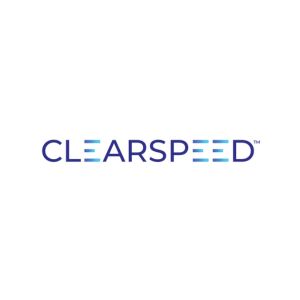
By futureTEKnow | Editorial Team
Big news is shaking up the edtech world: Pearson and Google are teaming up to bring advanced AI-powered learning tools to classrooms starting in 2025. For educators, students, and anyone tracking the intersection of technology and education, this collaboration signals a major leap forward in how digital tools will shape learning environments.
This isn’t just another tech integration. Pearson, a global education giant, is joining forces with Google, whose AI capabilities are pushing boundaries across industries. Their shared goal? To create classroom tools that are not only smart but also intuitive, adaptive, and accessible for teachers and students alike.
AI-Driven Learning Tools: Expect personalized learning experiences that adapt to each student’s pace and style. These tools will use Google’s AI to analyze student progress and suggest tailored resources, making learning more efficient and engaging.
Seamless Integration: The tools will be designed to work smoothly within existing classroom ecosystems, reducing friction for educators who already juggle multiple platforms.
Focus on Accessibility: By leveraging Google’s AI, Pearson aims to make educational content more accessible, breaking down barriers for students with diverse learning needs.
This partnership is part of a broader trend: AI is quickly becoming a cornerstone of modern education. From automating administrative tasks to powering adaptive learning platforms, AI is helping educators focus more on teaching and less on paperwork. The Pearson-Google collaboration is set to accelerate this shift, potentially setting new standards for what’s possible in digital classrooms.
Stay Informed: Track developments from Pearson and Google to understand how these tools might impact your classroom or product roadmap.
Prioritize Authenticity: As AI-generated content proliferates, human stories and genuine experiences will continue to resonate most with students and families.
Optimize for AEO: Structure your educational resources to answer real classroom questions, making them more discoverable by both AI tools and traditional search engines.
In summary: The Pearson-Google partnership is more than a headline—it’s a signal that the future of learning will be powered by smarter, more adaptive technology. For those shaping the next generation of educational tools and content, now is the time to focus on clarity, authority, and user-centered design to stay ahead in the evolving digital classroom.
Founded in 2018, futureTEKnow is a global database dedicated to capturing the world’s most innovative companies utilizing emerging technologies across five key sectors: Artificial Intelligence (AI), immersive technologies (MR, AR, VR), blockchain, robotics, and the space industry. Initially launched as a social media platform to share technology news, futureTEKnow quickly evolved into a comprehensive resource hub, spotlighting the latest advancements and groundbreaking startups shaping the future of tech.

Bridgit Mendler’s Northwood Space is pioneering mass-produced ground stations, enabling scalable, high-speed connectivity for the new era of satellite networks and megaconstellations.

SpaceX aims to nearly double launches from Vandenberg in 2025, facing support from federal agencies but strong objections from the state and local communities.

Traditional Medicare will pilot AI-assisted prior authorization in 2026 across six states, focusing on high-risk outpatient services. Clinicians retain final say, but incentives and access concerns loom as CMS tests fraud reduction and “gold card” exemptions. Here’s what providers and patients should know.

OpenArt’s new “one-click story” compresses scripting, visuals, and edits into ready-to-post short videos—fueling viral growth and a fresh IP debate. We break down how it works, adoption signals, what’s next (multi-character, mobile), and practical guardrails creators and brands should follow to stay original and compliant.

OpenAI’s o3 swept the Kaggle AI chess tournament, defeating xAI’s Grok 4–0. The victory fueled the intense rivalry between Altman and Musk, reshaping AI benchmarks.

NASA and Google’s AI-powered Crew Medical Officer Digital Assistant enables autonomous diagnoses for astronauts on Mars missions, redefining remote healthcare for space and Earth.

Pinterest’s CEO confirms that fully agentic AI shopping is years away, as the platform invests in AI-powered tools to enhance discovery, inspiration, and personalized shopping experiences for millions.

Shopify’s new AI shopping tools are transforming e-commerce, letting agents and chatbots deliver smooth, personalized shopping and checkout experiences across platforms. Learn how these innovations reshape online retail.

Meta has acquired WaveForms AI, a startup pioneering emotion-detecting voice technology. Learn what this means for Meta’s AI voice ambitions and the future of AI audio.

Tracelight is revolutionizing financial modelling for finance professionals with AI-powered Excel tools that automate complex tasks, reduce errors, and unlock new analysis capabilities. Learn how this next-gen solution changes the future of spreadsheets.

China’s Lanyue lander completed its first major test, showcasing advanced engineering for safe, crewed moon landings before 2030. Explore how this milestone shapes the space race.

Microsoft rolls out GPT-5 across its Copilot suite, integrating smarter AI for enterprise and personal users. Discover new features, free access, and what sets this launch apart.
To provide the best experiences, we use technologies like cookies to store and/or access device information. Consenting to these technologies will allow us to process data such as browsing behavior or unique IDs on this site. Thanks for visiting futureTEKnow.